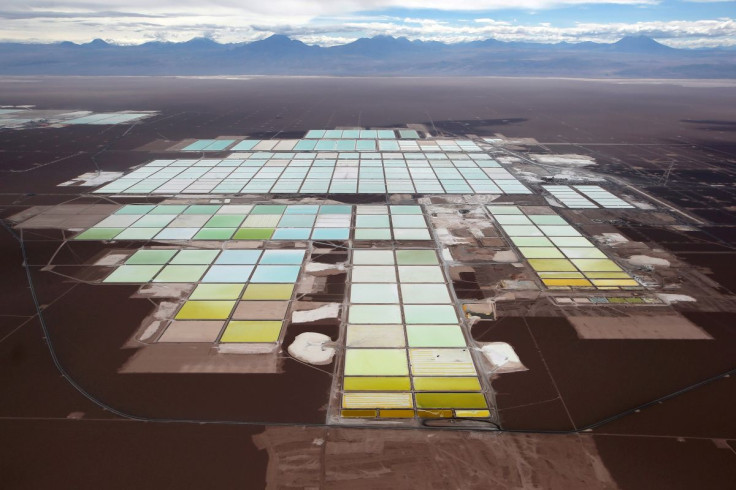SQM Misses Expectations In Third Quarter Earnings, As Low Prices Hamper Lithium Giant

Sociedad Química y Minera de Chile (SQM) saw revenue fall further than experts' predictions for the third quarter of 2023, as the Chilean miner with the world's highest lithium output disclosed its earnings report on Wednesday evening.
SQM's Q3 net income was $479 million, down 56% from the same period last year. Experts had predicted a 46% decline.
Quarterly revenue was $1.84 billion for SQM, down 38% year-over-year. Experts at Zacks Equity Research had predicted revenue of $2.01 billion, a decline of 32% from the third quarter of 2022. Average global lithium sale prices have declined 47% year-over-year, according to SQM.
Lower lithium prices relative to the peak in 2022 continue to drag on SQM's profit margins. "The third quarter 2023 results were impacted by significantly lower average sales prices in lithium," SQM's Chief Executive Officer (CEO) Ricardo Ramos said in a statement released Wednesday.
SQM produced 43,300 metric tons of lithium and derivatives in Q3, up from 41,600 tons from the same period in 2022, emphasizing the impact of low lithium prices on SQM's operations. Lithium produced in Chile accounted for more than two-thirds of SQM's total revenue in the third quarter.
Recent Obstacles For Chile's Golden Goose
SQM is currently in ongoing contract negotiations with Codelco, Chile's state-run copper miner, as the country prepares to implement a new regulatory framework for lithium mining that some critics have described as a form of nationalizing the industry.
Ricardo Ramos confirmed on Thursday's earnings call that the company had not yet finalized its negotiations with Codelco.
"Whatever potential agreement has to be for the benefit of Chile, the benefit of the Antofagasta region," Ramos said. "An agreement must be based on the shared visions and challenges that this operation has for all stakeholders."
Ramos also noted the company's goal of achieving "hydro-neutrality" -- net-zero water usage -- in its Chile operations.
As of November, the government has yet to submit legislation for President Gabriel Boric's "lithium strategy", leaving the future structure of royalty taxes and other state-imposed guidelines clear. SQM has contributed $2.4 billion to the Chilean treasury to date in 2023, the company disclosed on Wednesday.
Independent of Chile's changing regulatory framework, high global inflation and interest rates and volatile lithium prices have taken a toll on the lithium sector at large. In early November, SQM's primary global competitor, North Carolina-based miner Albemarle, posted Q3 earnings results that were comparably disappointing for investors.
Both SQM and Albemalre were recently at the center of failed acquisition attempts in Australia, with the nation's richest woman, mining magnate Gina Rinehart, successfully intervening in two separate multibillion-dollar takeover agreements between SQM, Albemarle and smaller Australian lithium firms.
Still, while revenue growth prospects may seem limited in the immediate term, SQM doesn't see its current struggles bleeding into long-term forecasts. "We continue to see strong fundamentals behind long-term lithium demand growth, supported by strong EV sales volumes and decarbonization targets across the globe," Ramos said in Wednesday's earnings statement.
Recent volatility in the lithium sector hasn't altered experts' predictions of surging demand through the 2020s, nor has it impacted lithium's strategic importance to world powers.
© Copyright IBTimes 2025. All rights reserved.






















